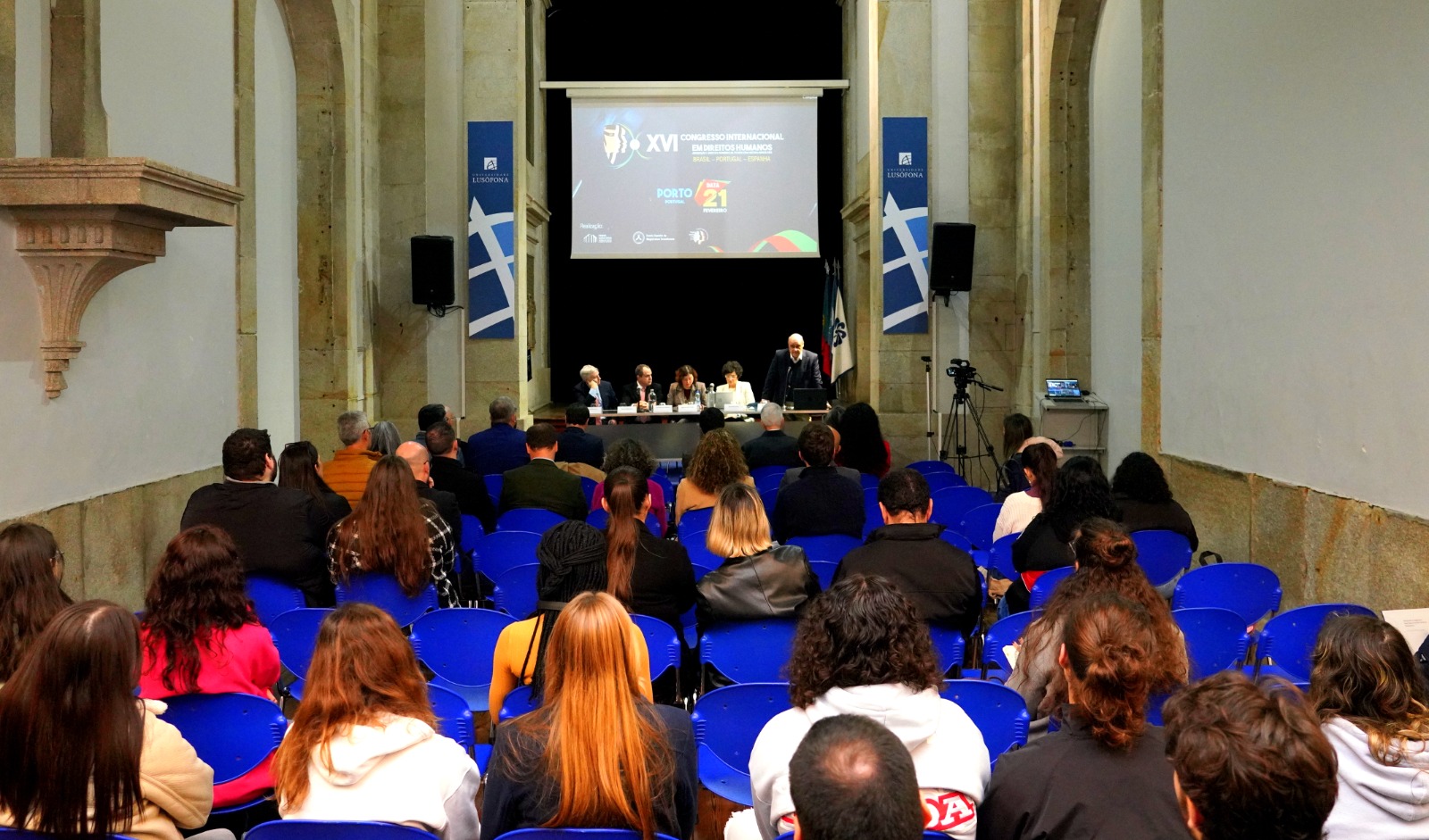
Held in the noble hall of the Lusophone University of Porto (Portugal), the second day of the XVI International Congress on Human Rights continued the itinerant program of debates and explanations on academic research aimed at the provision of justice and human rights. The XVI Congress takes place on an itinerant basis, in the cities of Lisbon and Porto (Portugal) and Barcelona (Spain). Next Friday (February 23rd), the activities will conclude in the Spanish city of Barcelona.
At the opening ceremony, Justice Marco Villas Boas, General Director of the Superior School of the Judges of the State of Tocantins, explained how the Congress has been held in editions outside Brazil. In his speech, the Justice reinforced the commitment of legal operators, whether magistrates or academics, to promote fundamental human rights. "Without fundamental rights, without the protection of man, even in relation to the State, there is no freedom, there are no other rights. We need to take good care of democracy and fundamental rights so that Western constitutions continue to flourish and enrich their constitutional bloc, especially in this aspect of protecting human rights," he said.
Justice José Igreja Matos, President of the Court of Appeal of the city of Porto, recalled the partnership of the Portuguese judiciary with the Master's Program in Judicial Provision and Human Rights, developed by Esmat in partnership with the Federal University of the State of Tocantins (UFT). "I think that the academia and the judiciary complement each other, they have a natural affinity. In every circumstance, we have to be together, closer," he said.
According to Professor Tarsis Barreto, coordinator of the Stricto Sensu Postgraduate Program in Judicial Provision and Human Rights, this is the first master's degree in Brazil to be developed in partnership with the state judiciary, as well as with the State and federal schools for the judiciary. "We're talking about the only experience, and the judiciary of the State of Tocantins has the highest number of master's Judges, many of whom are doctoral candidates. It's not just about conferring a title. It's about providing training, broadening horizons from a human rights perspective. Remembering that none of this would be possible without the efforts of Justice Marco Villas Boas, the creator of this Master's Degree," he said.
Tributes
Also on the occasion, Justice Marco Villas Boas, General Director of Esmat, presented the Esmat Medallion to Professor Lígia Carvalho Abreu, Associate Professor at the Lusophone University.
Conferences
Among the lectures given during the day, Justice Marco Villas Boas spoke about "The Impacts of Neoliberal Rationality on the State, Democracy and Individual Freedom". Also on the program, Justice Ângela Issa Haonat, Deputy Director of Esmat, spoke about "The Ethical Limits of the Use of Artificial Intelligence in Judicial Decisions".
About the Congress
The Congress is being held by the Master's Degree in Judicial and Human Rights in partnership with the Federal University of the State of Tocantins (UFT), the University of Lisbon, the Lusophone University of Porto and the University of Barcelona.




